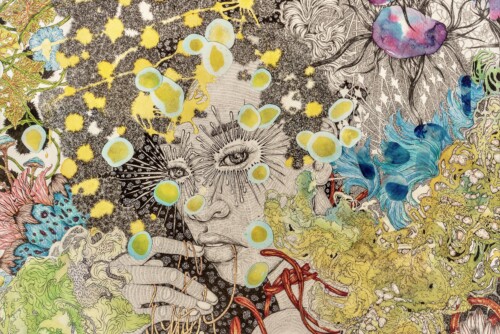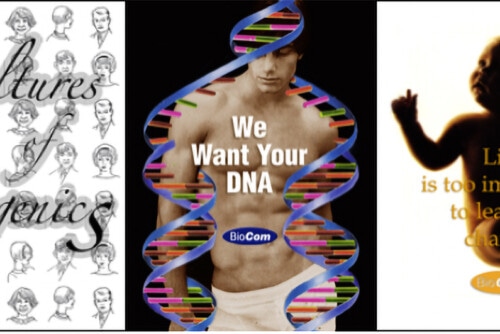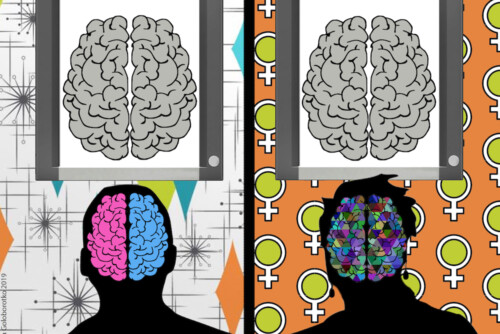Denver, January 2009
I have been asked to talk today about the possibilities of the moment; the opportunities and challenges that have opened to us as a result of Barack Obama’s election and a Democratic majority in both houses of Congress. Across the political spectrum, almost everyone senses that a new political moment has arrived, even if we aren’t sure exactly how to define the moment.
Before I get to what I most want to say, let me open with a couple of admittedly contradictory comments. If all of us—queer activists and our close allies—just go about doing what we individually and collectively ordinarily do, there will be lots of small victories at the national level over the next four (and, I hope, eight) years. At every level of the federal bureaucracy there are folks who will be responsive to us. Across a range of issues, there will be lots of non-headline-making decisions that will be queer friendly. There are also decent chances that, with the exercise of some intelligence in our organizing, goals like the repeal of “Don’t Ask, Don’t Tell” and the passage of an inclusive Employment Non-Discrimination Act will be achieved.
On the other hand, these are not ordinary times. The length, depth, and breadth of the current economic crisis cannot be predicted. When we gather at Creating Change a year from now, perhaps we will know that the worst is behind us, but perhaps not. Already, LGBT organizations around the country are firing staff, making it harder to do the work they ordinarily do. If the economic crisis spreads and deepens, it may sweep all other issues aside, but this is not what I want to talk about right now.
A few days after 9/11, I stopped reading newspapers and watching the news on television. I had just started a fellowship year free from teaching so that I could finish a biography of Bayard Rustin. After five days of compulsively watching television reporting and buying newspapers, I knew that nothing good would be on the horizon for a very long time to come. For the most part, I put news of the nation and the world aside, and I went about my business of research, writing, and teaching history.
Last year, sometime in the spring, I flipped over and became obsessed with the news again. It was around the time of Obama’s so-called race speech. It became clear to me that Obama had a really good chance of winning the nomination and, given the unpopularity of Bush, a really good chance of becoming president. My obsessive fascination with Obama and political news was not because I judged him to be especially progressive. His platform seemed very centrist to me, what one might expect of a liberal Democrat. It was not because, as an orator, he surpassed any one I had heard in a long time and left me enthralled whenever I listened to a speech. It was not even because he was African American, though that made the prospect of his election especially thrilling.
No, the fascination had something to do with the content of the rhetoric, the core message that framed any particulars of his platform. Obama had a way of talking about the nation, without embracing a chauvinistic nationalism. He had a way of talking about America, without sounding jingoistic. He had a way of asking everyone to think beyond partisanship, without it sounding phony or hypocritical to me. He used a rhetoric that asked us to recognize how we are bound together, without pretending that there were no differences of opinion and experience. For someone like myself, who came of age during the Vietnam War when “America” was coming to mean aggression and destruction abroad, and when appeals to unity masked attempts to suppress dissent; my attraction to Obama’s oratory was nothing short of astounding.
In particular, I found myself gripped by someone whose language, assumptions, platforms, and formulations stood almost completely outside the language, assumptions, platforms, and formulations that typically come with identity politics. It was not that he often referred specifically to identity politics. In fact, he rarely even explicitly acknowledged it.
For most of my adulthood, something like 80 to 90 percent of my energy has been organized around identity politics, either my own or as an ally to others. I am not alone in this. Since the 1960s, identity politics have been the most dynamic force in US society. Social movements have been organized around them. Mass political mobilizations, party politics in the United States, and political rhetoric all have been filtered through the lens of identity. Beginning with a politics of race, ethnicity, and national origin, moving into a politics of gender and sexuality, and expanding further to include a politics of disability and physical difference, identity politics have made things tick in the United States.
The changes that identity politics have wrought are extraordinary. The depth, breadth, reach, and range of these movements are almost beyond our ability to catalogue. We could spend the rest of the day just making lists of all the legal, institutional, cultural, and social changes that have grown out of identity-based movements, and we still would not have exhausted the list of what has been achieved. The changes have been so great in so many arenas that historical memory of what things were like is being lost to a younger generation. For instance, when I lecture to my undergraduates on the 1950s, which I describe as “the worst time to be queer,” they find the conditions of just 50 years ago unimaginable.
So, from one angle, when I think about identity politics, I think: “Hooray! Let’s drink a toast to identity politics!” But, unfortunately, there are also two undeniable, though not often acknowledged, results of 40-plus years of identity politics.
First of all, in every identity-based movement, the benefits have not been equally distributed. In fact, they have been wildly unevenly distributed. For instance, Barack Obama, an African American man, is now president of the United States. Yet, in the neighborhoods that surround where he lived in Chicago are countless young black men who have few prospects beyond drugs, gangs, violence, and prison. Or, to make the point very personal: I am a tenured college professor in Chicago with a comfortable salary and secure employment. Yet Amnesty International reports that in this same city, young transfolk of color are still mercilessly harassed by the police. 2
Is this inequality of outcomes accidental? Is it an unintended consequence of identity politics? Or is it perhaps inherent, organic to that framework of interpreting the world and political organizing? Do our attempts to remedy some of the deficiencies of identity politics through what we speak of as intersectional politics smash that framework and rescue us from its limits? Or will it too be something that distributes benefits unequally? Identity politics have helped make the student bodies of elite educational institutions like Harvard and Princeton admirably diverse. Yet at the same time, our urban public school systems are in a state of collapse and are increasingly populated by students of color. How will identity politics remedy that?
Secondly, although it is comforting to imagine identity-based movements as the basis for a multimovement progressive coalition bigger than the sum of its parts, few of us acknowledge that two of the most wildly successful identity movements of the last generation have been movements of the right. There is the movement of evangelical Christians, certainly a fiercely identity-based movement. Think, for instance, of how successful it has been in obstructing movement toward reproductive justice and how consistently it has opposed any movement toward LGBT equality. There has also been the identity-based movement of the filthy rich. Since the election of Ronald Reagan in 1980, the filthy rich and their supporters have so dramatically remade the tax system in the United States that the gap between them and the rest of us is much larger than it has been at any time in the last 80 years. The dismantling of a progressive federal income and corporate tax structure has led to the starving of the public sector, especially those programs that aim at economic democracy.
It is useful and sobering to put these two movements in the category of identity-based politics. When I think in these terms, it helps me to see that even when my kind of identity politics is motivated by fierce outrage at injustice and inequality, the “me” or “us” of an identity movement always implies and calls into existence a “them.” Is it possible that even when identity politics come from a progressive political stance, they unleash a fractured oppositional political process rooted in antagonism? That fracturing plays not to justice, but to self-interest and resentment and competition. When you unleash those emotions in political combat, the good guys seldom win, because resentment and competition and self-interest are not the stuff of social justice.
For me, this is the kind of rethinking that Obama’s ascendance has provoked. This is what the Obama moment most seems to be about. It is about a call to reconstruct how we think about and frame goals, agendas, priorities, and campaigns. It is not about denying differences, or aspiring to a phony unity rooted in pretense, but about framing agendas and pursuing goals that pivot around notions of a common good in which all share the benefits. A common good: The very phrase seems deeply moral to me.
So at this moment when we are going to achieve victories and make gains, large and small, just by doing the things that our organizations normally do, can we also creatively rethink our goals? Can we move along a path that stands outside the particularities of identity or interest group politics? Are there ways we can frame our queer agendas so that they put us smack in the middle of broad-based campaigns that speak to a common good?
Take, for instance, the issue of youth. In the last decade or so, queer youth around the country have displayed a great deal of initiative and energy. Gay/Straight Alliances have sprung up in thousands of high schools, a phenomenon almost unimaginable to folks of my generation. At the same time, the increasing visibility of queer youth has made them especially vulnerable to verbal harassment and physical violence.
We have a network of organizations that work on issues of youth and schools, that support the efforts of young people, and that work toward measures that will create “safe school” environments for students who identity as LGBT. This is all good. But do we really imagine that any amount of training of school personnel to be LGBT sensitive can make a school safe if it teaches abstinence-only sex education? As long as the federal funding policies of the Bush administration that reward schools for teaching abstinence-only sex education remain in place, goals of LGBT safety and acceptance will remain illusory.
Fighting for comprehensive sex education funding is something that will benefit all young people. It is not, strictly speaking, a gay identity-based issue. Yet LGBT youth will benefit immensely from successful efforts to institutionalize comprehensive sex education.
Take the issue of AIDS prevention: With 50,000 new HIV infections in the United States every year, the epidemic remains urgent and of crisis proportions. The population is disproportionately young, low income, of color, and men who have sex with men. Though AIDS was never solely a gay issue, its close association in this country with gay men marked it from the beginning as “not mainstream.”
At a time of great economic crisis, when the nation is debating how to stimulate the economy in ways that provide long-term benefits, why is the funding of community-based AIDS education and prevention not near the top of the list? It would provide jobs in communities that need jobs. It would reduce long-term health costs. It would preserve large numbers of young people as healthy, productive members of society. I can hardly imagine a more productive use of federal dollars. Can the rhetoric of a common good become the vehicle for seeing AIDS prevention as a priority in this new era?
I am not suggesting that everyone drop what they are working on and fight for comprehensive sex education or funding for community-based AIDS education. I am saying that I think what is being asked in this new era, what is being offered us, is the opportunity and challenge not to think in the particularities of identity—not in terms of group self-interest, but to imagine our goals and dreams and agendas in the context of a common good. To the degree that we are able to do that, we have more traction in this new political world. We will be contributing to the demise of a fractured, antagonistic system of political mobilization that may not have served us as well as some of us think it has.
- Amnesty International, “Stonewalled: Police Abuse and Misconduct Against Lesbian, Gay, Bisexual, and Transgender People in the U.S.,” 2005.[↑]



